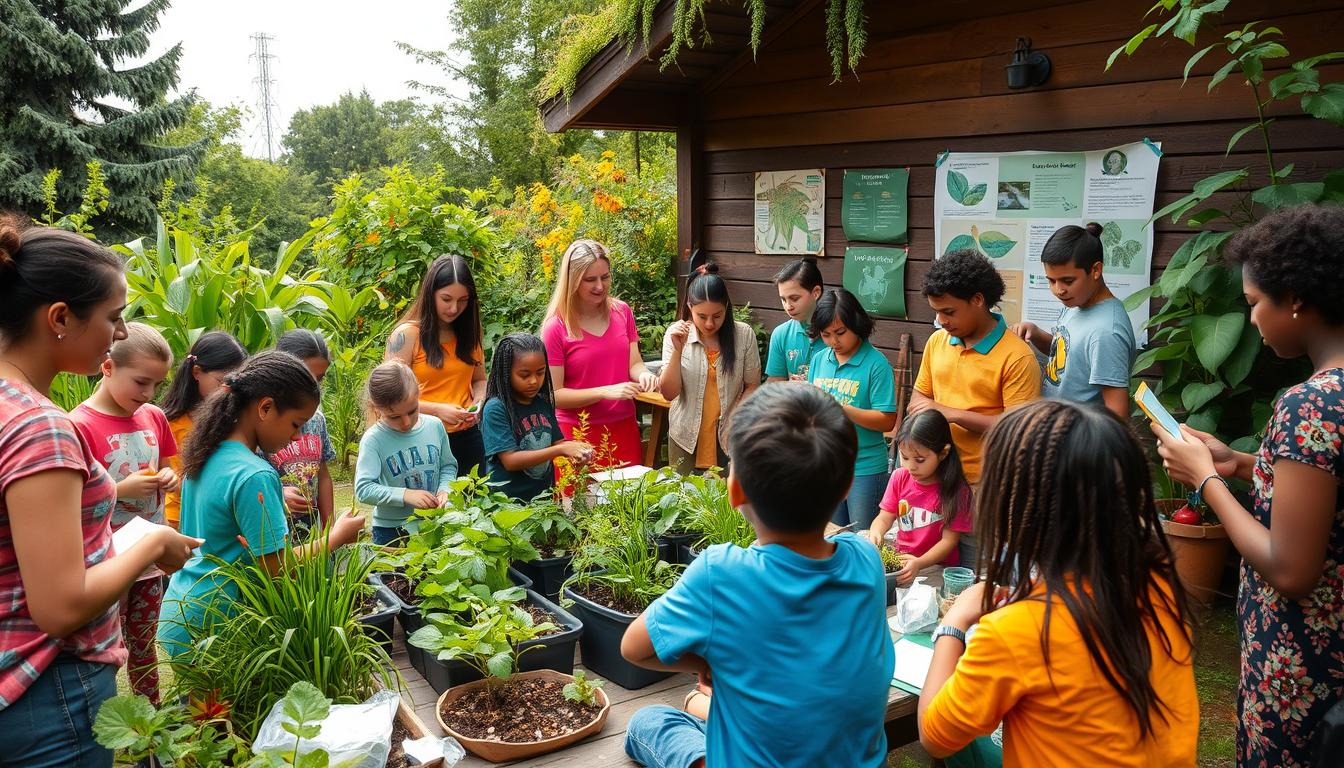U eri globalnih promena klime, pitanje ekologije i zaštite životne sredine postaje sve važnije. Podizanje svesti o ovom problemu kroz obrazovanje o ekologiji i konkretne akcije je kritično za budućnost naše planete. Uz brojne institucije i nevladine organizacije koje u Srbiji aktivno deluju na ovom polju, vaša uloga kao građanina postaje sve značajnija.
Širenje ekološke svesti može započeti još tokom osnovnog obrazovanja. Podaci iz Bor-a, gde je analiza sprovedena u novembru 2020. godine ukazali su na značaj podizanja ekološke svesti među građanima, što je ključno za rešavanje problema zagađenja i zaštite životne sredine. Upravo ovako planirane obrazovne inicijative mogu doneti konkretne rezultate u povećanju ekološke svesti.
Mileniijumska ekosistemska evaluacija, projekat koji je trajao pet godina i uključio 1300 naučnika iz 95 zemalja, naglasila je značaj obrazovanja za održivi razvoj. U Srbiji, konferencija „UNIVERZITET I ODRŽIVI RAZVOJ“ održana 21. aprila 2011. godine, istakla je ulogu univerziteta u promovisanju održivog razvoja i ekoloških znanja.
Sve ovo ukazuje na ključnu ulogu obrazovanja u podizanju ekološke svesti i efikasnom delovanju u zaštiti životne sredine. Nastojimo da kroz praktične projekte i akcije uključimo što više građana u borbu za očuvanje prirodnih resursa. Ministarstvo prosvete i nauke Republike Srbije, zajedno sa nevladinim organizacijama, finansira mnoge projekte usmerene ka povećanju ekološke svesti građana.
Pred nama je izazov, ali i prilika da kroz obrazovanje i obrazovne inicijative svakodnevno radimo na unapređenju ekološke svesti u našoj zajednici. Snaga obrazovanja može nas odvesti ka boljem i održivijem svetu.
Understanding the Role of Education in Promoting Environmental Awareness
Education serves as the bedrock for cultivating an environmentally conscious society. Addressing ecological challenges through structured learning programs and initiatives has been identified as crucial for embedding sustainable practices across various education levels.
The Importance of Ecological Education in Schools
Embedding ecological education within the school curriculum is essential. Through targeted school initiatives, students can develop a responsible attitude towards the environment from an early age. Research has consistently shown a positive correlation between educational programs and students’ attitudes towards ecological problems. Early exposure to an environmental curriculum shapes values and behaviors, fostering a generation committed to sustainable development. Informing citizens, particularly students, about the harmful consequences of human activities on the environment is pivotal for long-term sustainability.
University Programs Focused on Sustainable Development
At the university level, programs dedicated to sustainable development, such as those offered by the Faculty of Political Sciences at the University of Belgrade, integrate ecological policy with sustainable development concepts. These university sustainability efforts highlight the importance of combining theoretical knowledge with practical applications, forming a comprehensive understanding of environmental challenges. Statistical analyses have underlined the significant impact of formal education on shaping positive environmental practices and attitudes among students.
Collaboration with Non-Governmental Organizations
Collaboration with non-governmental organizations (NGOs) is instrumental in enhancing environmental education and practical engagement. NGO partnerships allow schools and universities to bridge the gap between theory and real-world application. This synergy fosters platforms for research, sustainability initiatives, and policy advocacy. Successful NGO collaborations create opportunities for students to participate directly in environmental projects, addressing both local and global ecological issues. These initiatives contribute significantly to the practical implementation of sustainable development education, driving a deeper understanding and commitment to ecological welfare.
Community Actions for Environmental Protection
Community-driven actions are pivotal for tangible environmental protection efforts. Initiatives aimed at engaging youth, utilizing social media for awareness, and recognizing Serbia’s successful ecological projects demonstrate the importance of grassroots movements in fostering sustainable practices.
Engaging the Youth in Environmental Projects
Youth engagement plays a crucial role in driving environmental projects forward. Engaging the younger population ensures the longevity of green initiatives and promotes a sustainable future. Environmental projects often focus on educating young individuals about the benefits of eco-friendly practices, such as recycling, conserving energy, and supporting biodiversity.
The United Nations has highlighted the significance of youth involvement in environmental protection through agendas like Youth, Peace, and Security. This emphasizes the role of young people in fostering peaceful, secure, and environmentally conscious societies.
Using Social Media for Spreading Awareness
Social media for awareness is a powerful tool in modern environmental campaigns. Platforms like Instagram, Twitter, and Facebook provide unprecedented opportunities to spread eco-friendly messages, rallying people to participate in green initiatives. This digital engagement not only reinforces community participation but also amplifies the reach of ecological efforts globally.

Successful Ecological Projects in Serbia
Serbia boasts several successful ecological projects that highlight community participation and commitment to sustainable practices. For instance, Schneider Electric’s Go Green competition encourages students to propose innovative sustainability ideas, fostering a culture of environmental stewardship. Additionally, grassroots environmental projects promote responsible behavior towards natural resource use and conservation.
| Project | Initiative | Outcome |
|---|---|---|
| Schneider Electric’s Go Green | Student innovation in sustainability | Enhanced ecological awareness and practical solutions |
| Local Grassroots Projects | Community-driven environmental actions | Improved resource conservation and biodiversity |
These Serbian ecological projects illustrate how concerted efforts across community levels can lead to successful ecological efforts, bolstering the adoption of green initiatives and sustainable practices.
Conclusion
The development of ecological conscientiousness is a fundamental prerequisite for the survival of all living beings on this planet. We have delved into how education plays a crucial role in instilling environmental awareness, emphasizing that this responsibility begins in schools and extends to higher education and collaborative efforts with non-governmental organizations. It’s clear from our research that embedding ecological education in academic curriculums enhances the educational impact, equipping future generations with the knowledge and skills they need to foster environmental preservation.
Community empowerment has proven to be a powerful catalyst for environmental action. From engaging youth in sustainable projects to leveraging the extensive reach of social media platforms, various proactive measures have been effective in promoting eco-friendly initiatives. Case studies from Serbia showcase how local projects can drive substantial change, underscoring the importance of grassroots efforts in building a sustainable future.
Ultimately, the task of advancing ecological awareness and environmental preservation lies with each of us. By participating in educational programs, supporting community initiatives, and adopting eco-friendly habits in our daily lives, we can collectively steer towards a more sustainable future. This article aims to inspire you to take an active role in this essential endeavor, emphasizing that through consistent and concerted efforts, we can indeed make a significant difference for ourselves and future generations.
